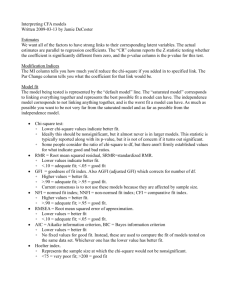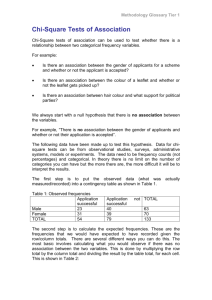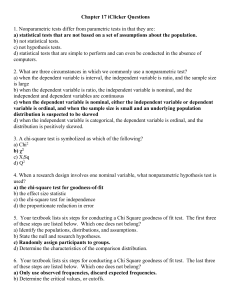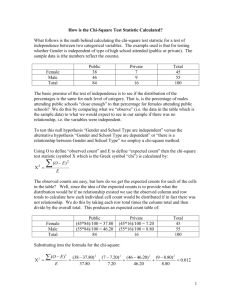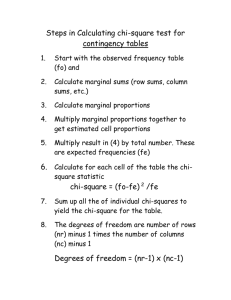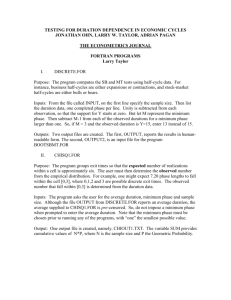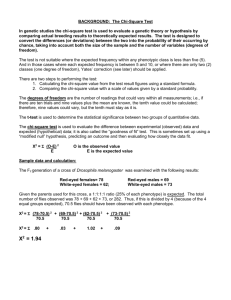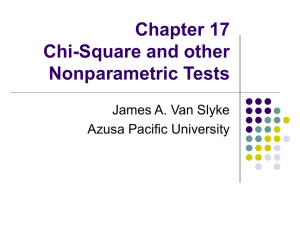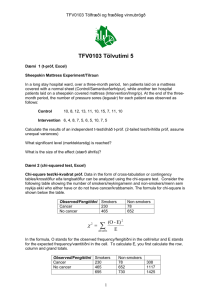Chapter 14 - StatsMonkey.
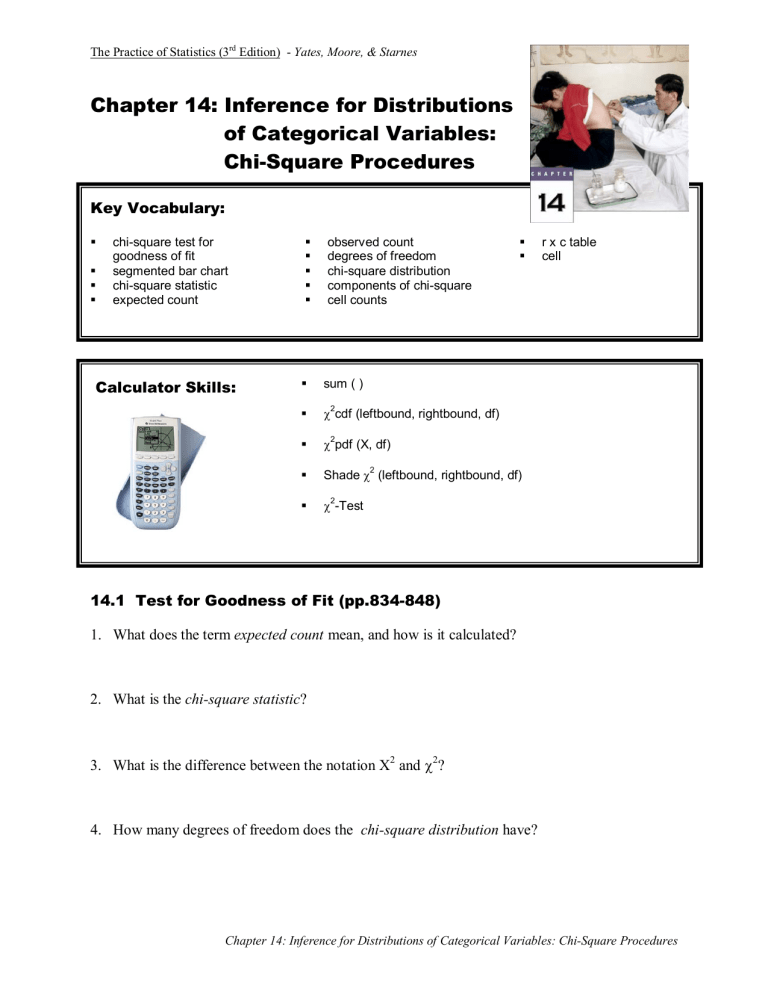
The Practice of Statistics (3 rd
Edition) - Yates, Moore, & Starnes
Chapter 14: Inference for Distributions of Categorical Variables:
Chi-Square Procedures
Key Vocabulary:
chi-square test for goodness of fit
segmented bar chart
chi-square statistic
expected count
Calculator Skills:
observed count
degrees of freedom
chi-square distribution
components of chi-square
cell counts
sum ( )
r x c table
cell
χ 2 cdf (leftbound, rightbound, df)
χ 2 pdf (X, df)
Shade
χ 2
(leftbound, rightbound, df)
χ 2
-Test
14.1 Test for Goodness of Fit (pp.834-848)
1.
What does the term expected count mean, and how is it calculated?
2.
What is the chi-square statistic ?
3.
What is the difference between the notation X
2
and
χ 2
?
4.
How many degrees of freedom does the chi-square distribution have?
Chapter 14: Inference for Distributions of Categorical Variables: Chi-Square Procedures
The Practice of Statistics (3 rd
Edition) - Yates, Moore, & Starnes
5.
State the general form for the null hypotheses for a
χ 2
goodness of fit test.
6.
State the general form for the alternative hypotheses for a
χ 2
goodness of fit test.
7.
What conditions must be met in order to use the goodness of fit test ?
8.
What is the shape of a chi-square distribution ? What happens to the shape as the degrees of freedom increases? (Illustrate with a diagram)
9.
What is meant by a component of chi-square?
10.
What does the largest component of chi-square signify?
11.
Why is it necessary to perform follow-up analysis to a chi-square test?
Chapter 14: Inference for Distributions of Categorical Variables: Chi-Square Procedures
The Practice of Statistics (3 rd
Edition) - Yates, Moore, & Starnes
14.2 Inference for Two-Way Tables (pp.849-885)
1.
What information is contained in a two-way table for a chi-square test?
2.
State the null and alternative hypotheses for comparing more than two population proportions.
3.
How do you calculate the expected count in any cell of a two-way table assuming the null hypothesis is true?
4.
How many degrees of freedom does a chi-square test for a two-way table with r rows and c columns have?
5.
What requirements must be checked before carrying out a Chi-square test?
6.
Summarize how to carry out a Chi-square Test for Homogeneity of Populations:
Chapter 14: Inference for Distributions of Categorical Variables: Chi-Square Procedures
The Practice of Statistics (3 rd
Edition) - Yates, Moore, & Starnes
7.
State the null and alternative hypotheses for a Chi-square test for Association/Independence.
8.
Summarize how to carry out a Chi-square Test for Association/Independence:
Chapter 14: Inference for Distributions of Categorical Variables: Chi-Square Procedures
